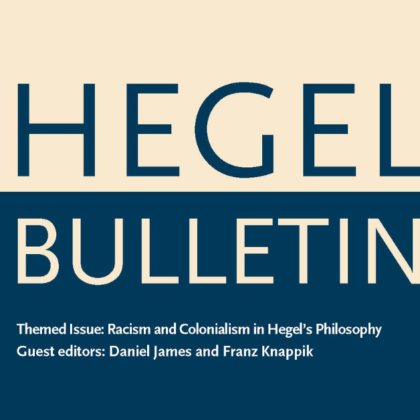A fragment of Aristotle’s lost Eudemus in Tertullian’s De Anima
Aristotle is certainly one of the most foundational, influential, and therefore heavily commented on and thoroughly studied figures in the history of philosophy. One would think that we have the full picture by now and there wouldn’t be much to add beyond further nuance or clarification.
Yet, what if I were to say that most of Aristotle’s writings have been the subject of little study?
Now, such a comment would seem plainly absurd. It is, however, entirely accurate, first and foremost, because the greater part of Aristotle’s output – including everything he himself published – has been lost. What remains extant is a set of lecture notes, heavily edited and of unsure origin, which only overtook Aristotle’s published writings in popularity and widespread dispersion towards the end of the third century AD.
Regarding those lost writings, contemporary scholarship has come to a dead end: relying heavily on late-ancient authors, who only had second-hand access to Aristotle’s lost writings and were committed to the task of synthesising the views of Aristotle with those of Plato, we end up with the picture that the views contained in Aristotle’s lost works are apparently at odds with the positions which he arrives at in his extant writings. Scholarship has come, therefore, to the all too neat conclusion that these lost works would have represented only an “early” or “immature” Platonic stage in Aristotle’s philosophical development – hence, not worthy of further investigation.

From left to right: Origen, Tertullian, and Clement of Alexandria
In my article, “A Fragment of Aristotle’s Lost Eudemus in Tertullian’s de Anima,” I aim to remedy both methodological and philosophical problems in previous approaches to the reconstruction of Aristotle’s lost works, here focusing on the content of one lost dialogue in particular, titled “Eudemus, or, On the Soul.” I show that the best way to access the content of Aristotle’s Eudemus is by examining a set of earlier figures who have been greatly overlooked as reporters of Aristotle’s lost writings, namely the Fathers of the Church, who have long been understood as uninterested in and lacking access to the thought of Aristotle. Of particular importance among them is Tertullian, who is the first theologian to write in Latin and is in many ways the father of Western theology. Tertullian devotes a long section of his treatise, de Anima, to discussing the positions of Aristotle which, on my view, he found in the Eudemus. Moreover, Tertullian’s account is paralleled in two central figures of early Greek Christianity, Clement and Origen of Alexandria, both of whom also discuss Aristotle’s views in similar terms, and yet whose comments have likewise been overlooked by scholars working on the fragments of Aristotle’s lost works.
In looking to these earlier readers of Aristotle’s lost works, we find invaluable reports that show that the understanding of the soul put forth in the Eudemus is – contrary to earlier scholarship – rather in harmony with Aristotle’s extant treatise on the soul, de Anima: namely, while de Anima hints at the separability and immortality of the intellect, the Eudemus developed this view in full.
My study serves then not only to provide new information about one of Aristotle’s most important dialogues, but also to give us new insight into how his writings were distributed across the Roman empire and how his ideas were being interpreted and utilised in the early Christian Church. Here, we have the opportunity to peer into the libraries of three of the founding figures of Christian thought, in Roman North Africa and in Alexandria. Therein we find a dialogue, the name of its author familiar to us, Aristotle –a dialogue aiming to answer some of the most basic yet most profound questions about the nature of the human soul – yet, which is lost to us today.
The article “A fragment of Aristotle’s lost Eudemus in Tertullian’s De Anima“, by Franziska van Buren-Penev, is out now in the Classical Association’s journal, The Classical Quarterly. Access is free for a limited time.






